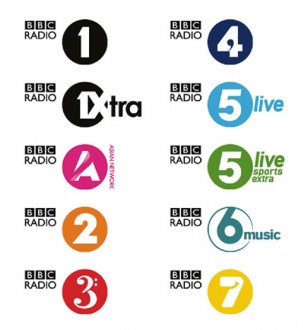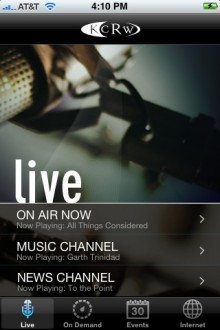BBC Radio To Play Or Not…
We recently picked up on a news item which revolves around the playlist policies of the publically-funded (to the extent of over £3 billion per year) BBC and in particular one of its presenters, Jo Whiley. For many years we’ve questioned the playlist policies and musical content of the BBC; its major influence on the playlists of other UK radio stations and its own TV channels; and the subsequent commercial sales of playlisted songs and their chart success. Now while this piece of news regarding Jo Whiley may be of some interest, we would also put forward the argument that DJ/presenters should be given far greater freedom to play what they like rather than follow a prescriptive playlist policy dictated by executives. So, because Whiley’s husband manages the bands mentioned (below) does this mean that despite liking their songs, she cannot play them? That depends on whether she genuinely liked the music or not… However, the BBC states categorically (below underlined) that BBC daytime presenters play no part in selecting songs and in so doing contradict their own website-declared policies (see below).
There can be little doubt that the BBC through its numerous (national and regional) radio and TV stations has a major influence on what music is exposed and sells. Our argument has always been that prescription (through playlists) leads to favouritism and that relatively few acts receive excessive exposure, while the very best music and acts are starved of valuable airtime. It is of course free to play what it wants (and some of what it airs is of reasonable quality) but the main questions remain: why select songs by an executive committee (for God’s sake!) and the number of times a song is played. Hell, it’s not rocket science - you listen to an album or single and if it’s great you play it (like presenters used to do) - you need an executive committe to do this? The BBC is publically funded and it’s commercial arm is hugely profitable. The BBC dominates the airwaves at no financial risk (compared to companies that struggle to make a buck) and in our view fail to provide a broad enough palette of quality music on its most popular stations and TV channels. In other words, it fails to fulfil its public service function in relation to music output.
The BBC now dominates the Internet as well as the airwaves. It has become monolithic.
Is it any wonder that the proposed idea of using a (small) part of the the massive public subsidy it receives should be given to other broadcasters is dimissed by the corporation out-of-hand? Here’s a suggestion:
There are approximately 120 community radio stations out there in the UK who could provide an alternative and locally based source of musical exposure to those quality artists (old and new) who really need and deserve it. How about allocating a modest level of the BBC’s massive income to that sector to develop its capabilities, skills, ambitions and Internet presence, while expanding the number of UK community stations? We have experience of this sector through our own radio shows on our local community FM station and know that the sector is capable of providing an alternative and different source of music. We also know that there are many talented young presenters out there who pray for the opportunity to hone their skills and play the music they love - unhampered by a prescriptive playlist dictat. There’s highly creative, trained and exciting talent out there waiting to be unleashed… and an even greater number of signed and unsigned musical talent waiting to be heard. Non-commercial radio stations in the USA have become an important, alternative, innovative, and adventurous sector - the UK equivalent could achieve the same, given the chance.
HERE’S THAT NEWS CLIP:
Jo Whiley, the BBC Radio 1 DJ, showcased on her popular morning show two bands managed by her husband. Whiley, 44, featured high-profile live sets by the Hoosiers and the Automatic, which are looked after by Steve Morton, her husband. Recordings of the Radio 1 music sessions were included on two compilation CDs released by Sony, named the ‘Live Lounge’ after that section of her show. They sold a combined total of 1.26m, for which the bands received undisclosed royalties.
The disclosure will raise questions about the BBC’s failure to make public the commercial interests of presenters on Radio 1, despite its dominant role in the music industry.
The station has a weekly audience of 11.3m and can make or break new bands with its choice of which songs to play - its official playlist of 50 songs that are rotated throughout the schedule. Whiley, who is also the face of the BBC’s Glastonbury coverage, invited the Automatic onto her show for a live performance in June 2006.
A week later their single, Monster, went into the charts at No 4. The Hoosiers performed live on her show in October 2007, and later that month their debut album went to the top of the charts. Their performances for Whiley were featured on the compilation CDs called the Live Lounge. A CD, which featured the Automatic, sold 902,000, while another, with the Automatic and the Hoosiers, sold 359,000.
The Radio 1 playlist also had a part in their rise. In May 2007 the Hoosiers were playing to crowds of 15-20 people, but after their debut single went on the BBC’s playlist their popularity exploded.
The BBC said that Whiley, who is moving her show to weekends and has given up her weekday slot to make way for Fearne Cotton, had noted her husband’s interests on an internal register. Morton insisted that his bands were not given special treatment, saying that the Hoosiers were playlisted by regional and commercial radio stations and MTV, the music tele-vision channel, before appearing on the Radio 1 playlist. He added that the Automatic’s hit single Monster was broken by both Radio 1, music tele-vision and regional radio at the same time. He insisted there was no conflict.
The BBC refuses to disclose the names of the 16 panellists who decide each week which songs will be given a slot on the playlist. However, The Sunday Times has obtained a list showing that they are mainly producers of the station’s shows. Stuart Last, Whiley’s producer, is one of them, as is Matt Fincham, a producer on Chris Moyles’s breakfast show.
Dominic Hardisty, a music executive who signed the Killers, one of the world’s biggest bands, said: “Radio 1 is the single most influential force in breaking new music in the UK. Its playlist decisions heavily influence all the other commercial music stations. It should ensure the playlist process is transparent.”
A BBC spokeswoman said it had a rigorous conflict of interest policy. “Jo Whiley has no influence on the Radio 1 playlist and does not play any part in selecting songs for the Live Lounge albums,” she said.
|
|

|

New York Dolls |
LATEST GALLERY IMAGES

Alanis Morissette 
Where Israel Goes, Misery Follows |
|
|



